Abstract
A one-year cohort of patients from a defined catchment area with acute functional disorders were allocated at random to brief care (experimental group) or standard care (control group) in hospital to examine the effect of shortening hospital stay on the clinical and social functioning of patients and the distress abnormal functioning caused to others. A total of 127 patients were interviewed on entry to the study, and 106 were followed up. The brief care group had significantly shorter mean and median lengths of stay than the control group, but there was no difference between the groups in the number of days spent in hospital during subsequent admissions. The groups were well matched for clinical and social variables. Rates of improvement over 13 weeks were essentially the same by all measures of outcome, including the Present State Examination and Patient's Behaviour Assessment Scale, which was developed for the study to measure deterioration in behaviour and social functioning and adverse effects and distress on others. There was no difference between the two groups in burden to the community supporting services, social security requirements, or GP attendances. Improvement rates were nearly identical on all measures within and across diagnostic subgroups. Brief care resulted in a 33% reduction in average length of stay compared with the year before but was associated with a corresponding increase in day hospital use. The short-stay policy continued the year after the study finished.
The findings confirm the value of shortening hospital stay and improving day care facilities for most localities.
Full text
PDF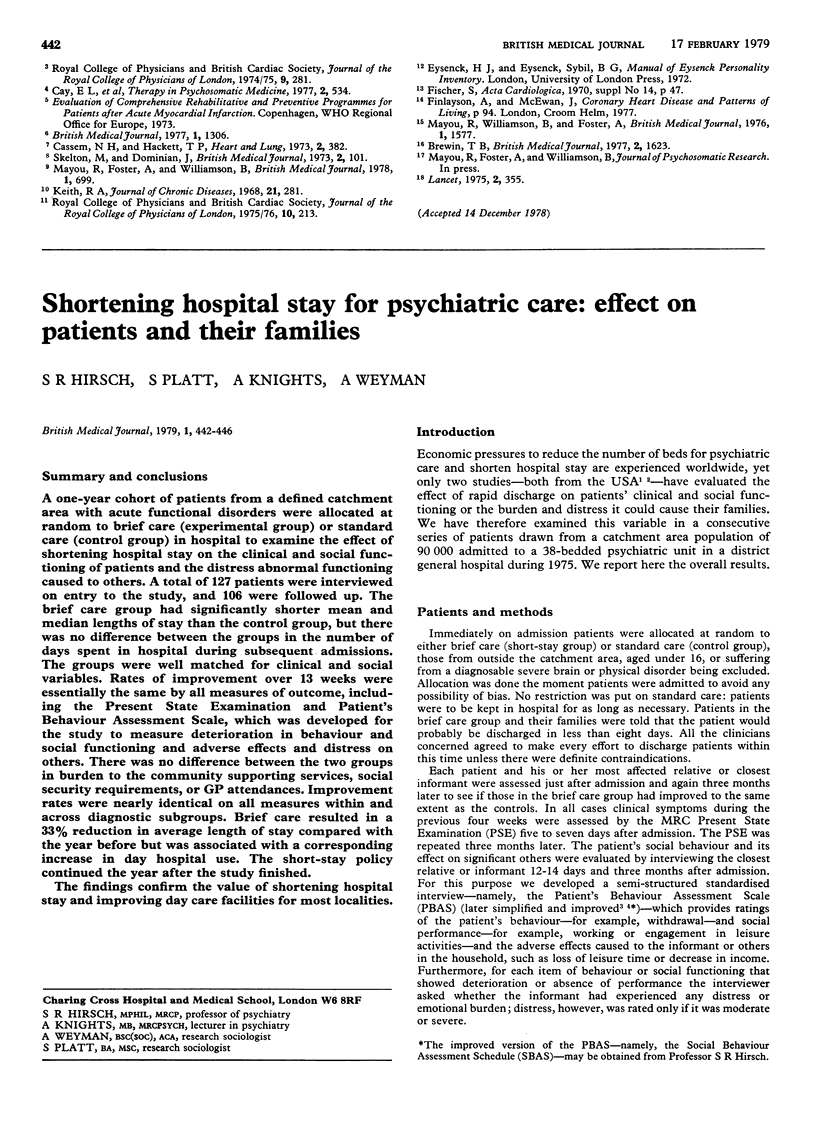
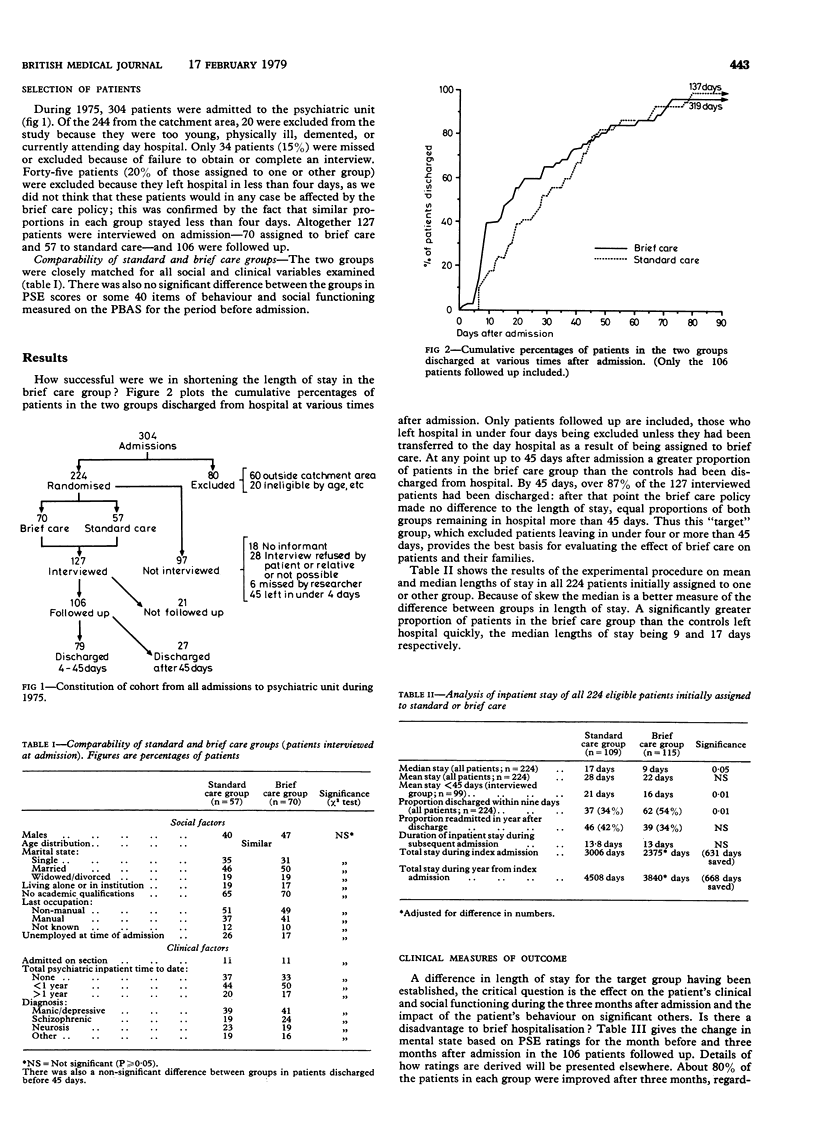
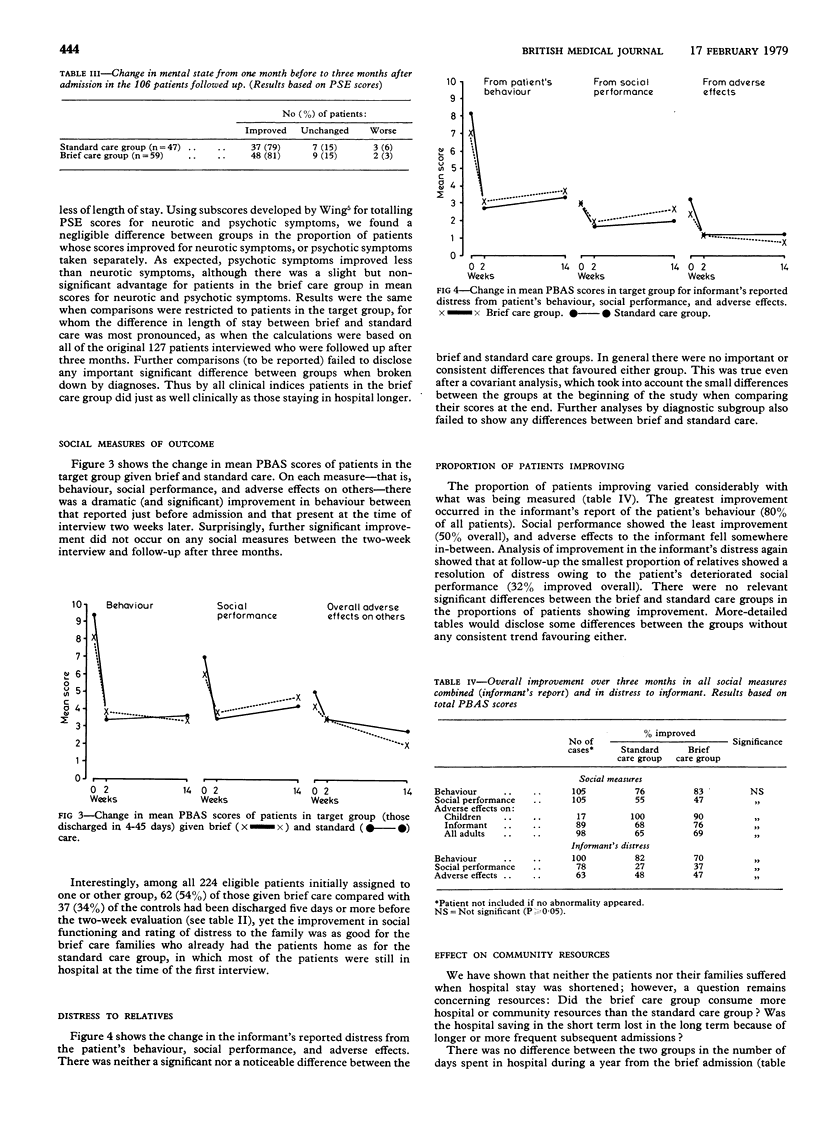
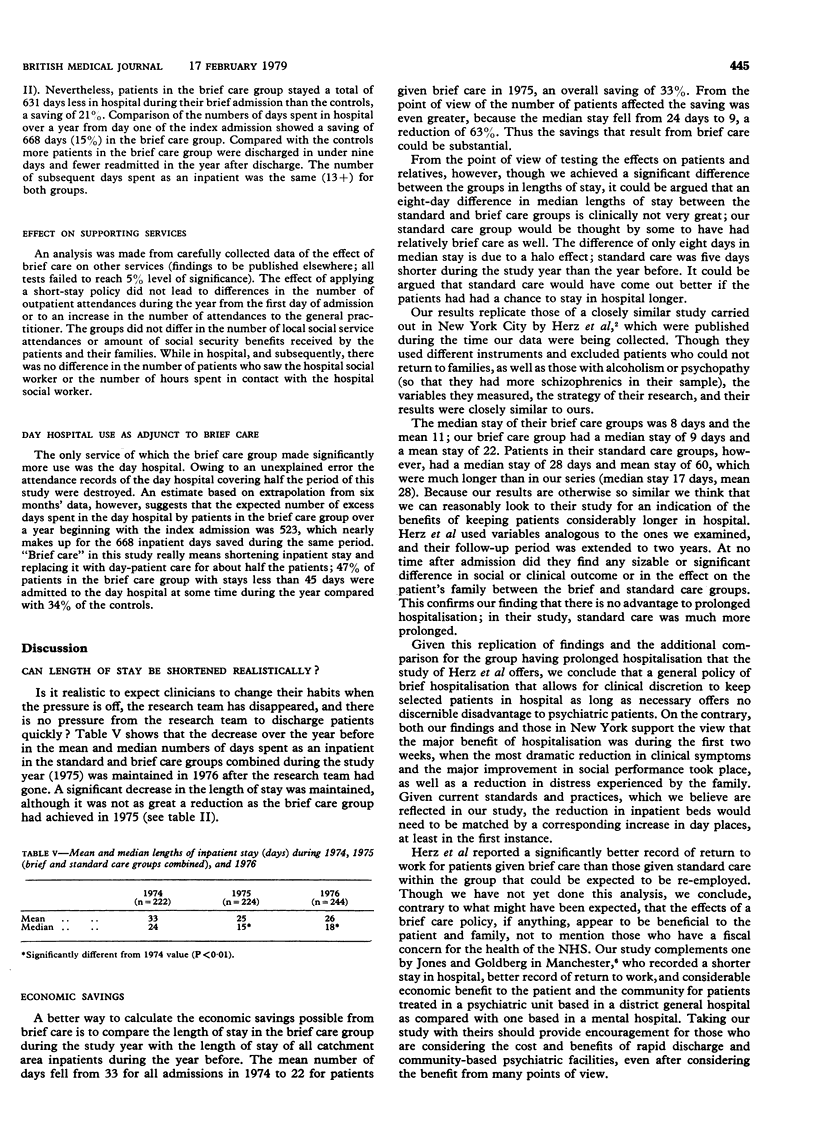
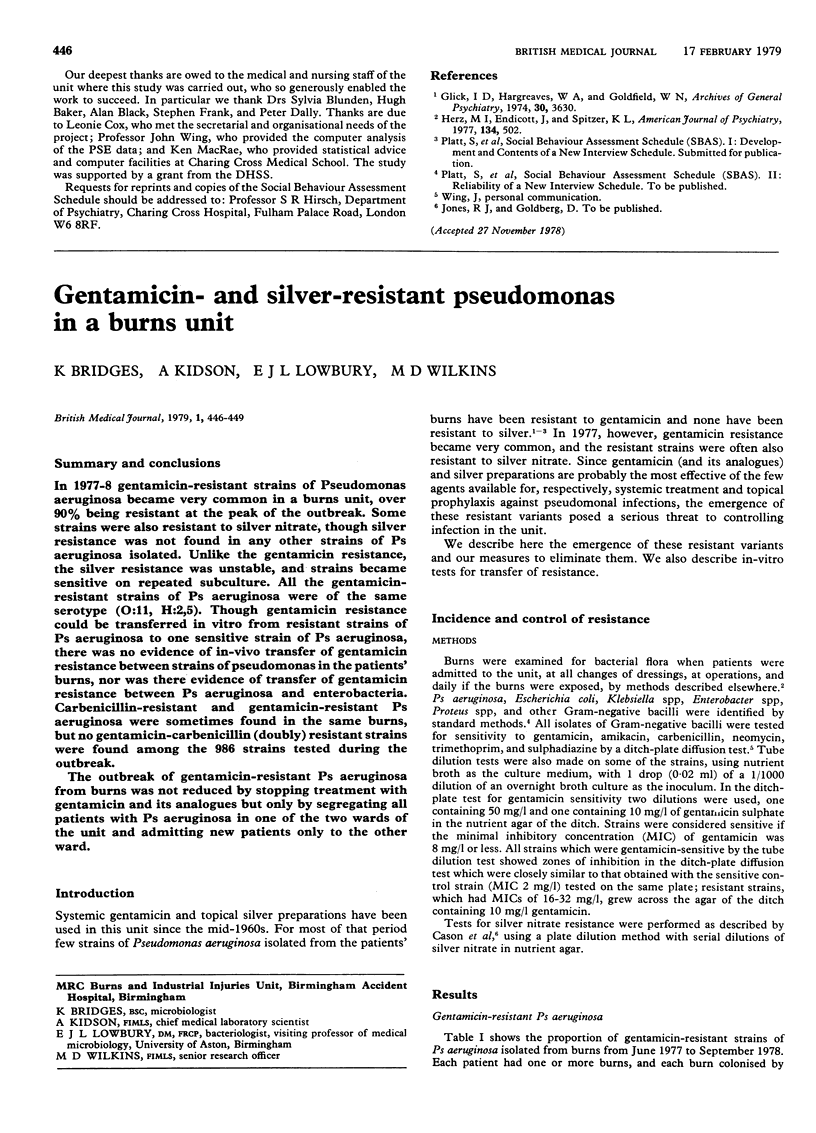
Selected References
These references are in PubMed. This may not be the complete list of references from this article.
- Herz M. I., Endicott J., Spitzer R. L. Brief hospitalization: a two-year follow-up. Am J Psychiatry. 1977 May;134(5):502–507. doi: 10.1176/ajp.134.5.502. [DOI] [PubMed] [Google Scholar]



